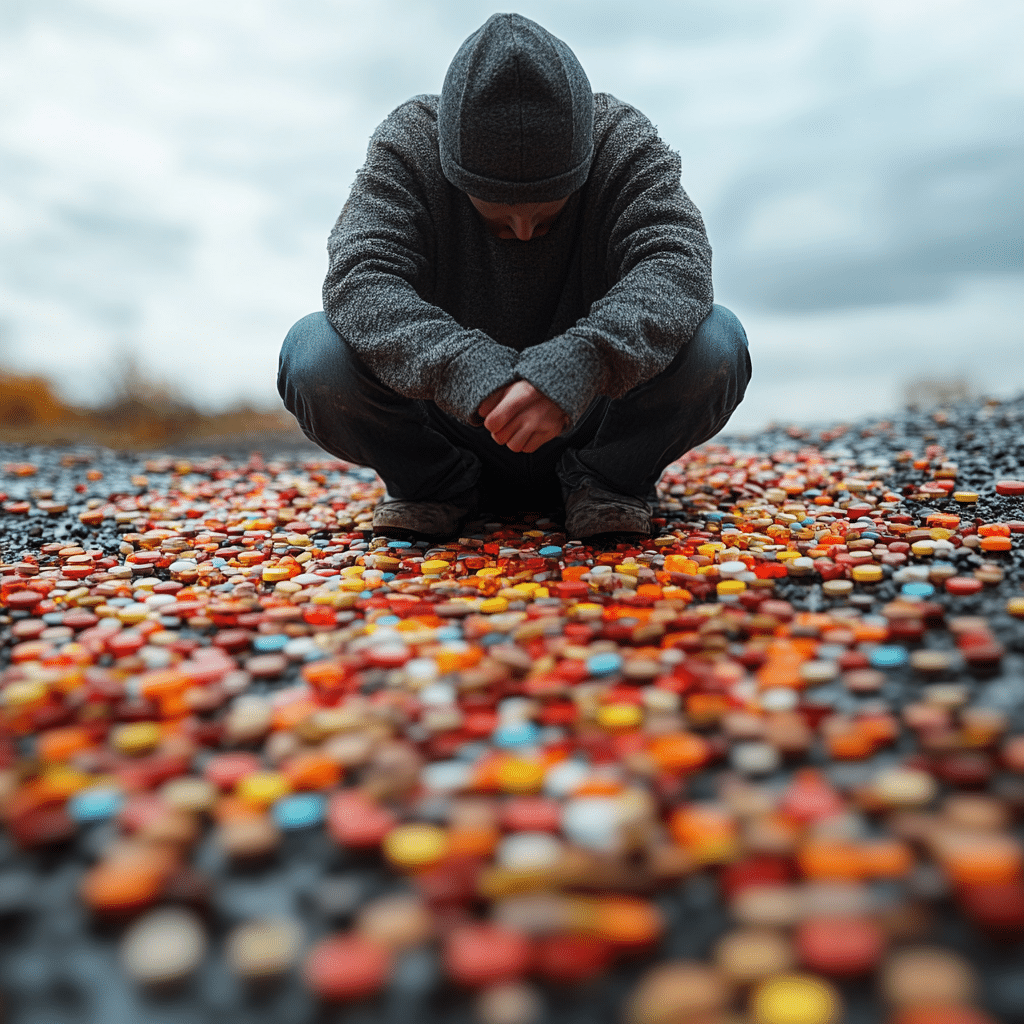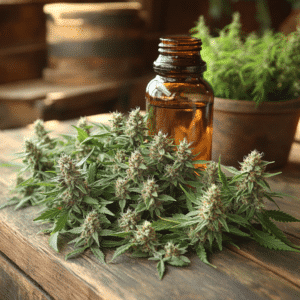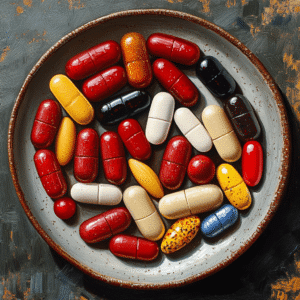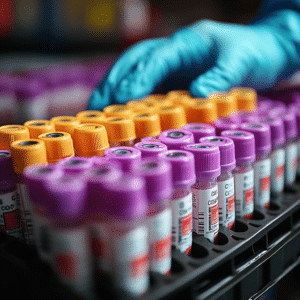Understanding the causes and effects of substance abuse requires a compassionate look into the societal and individual factors driving this epidemic. From mental health struggles to socioeconomic pressures, the landscape of addiction is layered, impacting not just individuals but families and communities as a whole. As a non-profit organization, Mothers Against aims to support parents facing these harsh realities. Together, let’s uncover the top seven causes and effects of substance abuse today and consider how we can foster resilience in ourselves and our loved ones.

Top 7 Causes and Effects of Substance Abuse Today
1. Mental Health Disorders
Mental health disorders often go hand in hand with substance abuse. Research highlights that about 50% of those grappling with chronic conditions like anxiety or depression might resort to alcohol or drugs as a form of escape. Just look at Kurt Cobain, a talented musician who battled depression and ultimately succumbed to heroin addiction. This connection between mental health and substance use forms a vicious cycle that perpetuates suffering. For parents, recognizing this link can pave the way toward effective support and intervention.
2. Peer Pressure and Social Influences
The environment where our children grow up plays a critical role in shaping their views on drugs. Teenagers, in particular, are vulnerable to peer influences. A study by the National Institute on Drug Abuse reveals that adolescents surrounded by peers who abuse substances are more inclined to partake themselves. Take the infamous “Wolfpack,” for example; this group exemplifies how friendships can forge strong bonds around substance use, tragically leading to higher addiction rates. Parents need to foster open dialogue about peer relationships to empower their children to make healthier choices.
3. Socioeconomic Factors
Poverty and limited opportunities strongly correlate with substance abuse. Communities plagued by unemployment and insufficient access to education often see alarming addiction rates. Appalachia is a prime example, where the decline of the coal industry saw a troubling spike in opioid abuse. The economic despair fuels a thirst for escape, leading individuals down a dark path. Understanding these economic backgrounds may help parents lend support and find resources for those struggling in their communities.
4. Trauma and Abuse
Experiences of trauma, especially in childhood, can lead individuals to self-medicate with substances. The Adverse Childhood Experiences (ACE) study indicates that those with higher ACE scores tend to face substance-related issues as adults. Demi Lovato has candidly shared her struggles with addiction stemming from past traumas, illustrating the critical need for understanding and healing in families. As parents, fostering a nurturing environment and identifying signs of trauma can serve as a lifeline for recovery.
5. Genetic Predisposition
Genetics significantly influence an individual’s likelihood of developing a substance use disorder. Studies suggest that about 40-60% of addiction susceptibility is genetic. Robert Downey Jr. is a well-known figure whose family history of substance abuse influenced his own battle with addiction. This genetic thread reminds parents that addiction can run in families, emphasizing the importance of awareness, so they can better support their children.
6. Availability and Accessibility of Substances
The easier it is to access drugs or alcohol, the higher the chances of abuse. The late 1990s prescription opioid crisis serves as a glaring example, where aggressive marketing led to rampant addiction issues across the nation. As Mothers Against advocates for change, it’s crucial for parents to engage in open discussions about substance availability and its potential consequences. Staying informed can empower families to steer clear of negative influences.
7. Lack of Education and Awareness
Insufficient education regarding the dangers associated with drugs can exacerbate substance abuse rates. Programs like DARE tried to educate youth, yet their effectiveness has often been questioned. The movement toward evidence-based education highlights the need for informed discussions about addiction. Knowledge can act as a protective shield; parents should proactively educate themselves and their children about the stark realities of addiction.

Consequences of Substance Abuse: The Ripple Effects
Recognizing the effects of substance abuse is as vital as understanding its causes. Each root cause gives rise to serious consequences that affect not only individuals but also families and communities.
Emotional and Psychological Effects
Substance abuse can dramatically shift a person’s emotional and psychological well-being, leading to heightened levels of anxiety, depression, and suicidal thoughts. Families left in the wake of an overdose often find themselves coping with intense grief and a cycle of trauma that can carry on for generations. By offering a support system and access to resources, Mothers Against aims to alleviate some of this burden and foster healing.
Family Dynamics and Relationships
The impact of substance abuse on families cannot be understated. Trust gets eroded, communication breaks down, and, in dire scenarios, domestic violence can erupt. The tragic story of Robin Williams exemplifies this profound effect on loved ones, demonstrating that substance abuse doesn’t just mark the individual; it transforms family dynamics altogether. By addressing these challenges, we can build more robust family foundations rooted in understanding and compassion.
Economic Impact
The financial burden of substance abuse hits hard, with untreated disorders costing the U.S. economy over $600 billion annually due to lost productivity, healthcare expenses, and crime-related costs. Employers lose money, and communities suffer as local organizations struggle to address these issues. As parents, being aware of the economic implications can motivate us to advocate for policies that prioritize addiction recovery.
Crime and Legal Consequences
Substance abuse is frequently linked to crime, with many individuals turning to illegal activities to support their habits. Theft and drug trafficking often rise in areas affected by high addiction rates, creating a vicious cycle that strains the justice system. Understanding this connection can help parents and communities advocate for effective prevention and treatment programs, breaking this relentless cycle.
Societal Stigmas
Lastly, societal stigmas surrounding substance abuse can lead to isolation for those struggling. Many individuals hesitate to seek help due to fear of judgment, further complicating their recovery journey. Addressing these negative perceptions is paramount to cultivating an environment that encourages recovery. By sharing stories and raising awareness, we can foster a society that embraces healing.
Addressing the Challenge: Moving Forward
In light of the causes and effects of substance abuse, a multifaceted approach is essential. Combining education, support networks, and accessible treatment options can create a safer environment for healing and growth. As advocates for change, Mothers Against emphasizes the need to break down stigma and open up dialogues about addiction and recovery.
Together, we can change the narrative surrounding substance abuse, offering hope and healing to those grappling with addiction. Remember, You reap What You sow, and by fostering understanding and compassion, we’re planting the seeds of recovery for ourselves and our loved ones.
For parents looking for immediate resources, check out our page on the Cssrs (Columbia-Suicide Severity Rating Scale) or discover options for local support in Miami Valley jails. Explore our site for educational resources on substance abuse and recovery today!
Causes and Effects of Substance Abuse Unmasked Today
Understanding the Triggers
Substance abuse doesn’t occur in a vacuum. Various factors contribute to this pressing issue. For instance, psychological conditions such as anxiety or depression often act as catalysts for addiction. Understanding these causes can be as captivating as learning about a film’s background. Did you know that Joe Davidson faced significant challenges during his career, which could easily parallel the internal strife many individuals experience with addiction? These circumstances can spark a cycle that makes overcoming these hurdles tough.
Environmental influences also weigh heavily on an individual. Peers and family dynamics play a significant role in shaping one’s choices. As folks rush to snag deals during Target Black Friday events, they often overlook the underlying issues that might have led friends or loved ones to substance use. This suggests that social situations can either promote healthy habits or push individuals toward harmful behaviors, underpinning the social causes of substance abuse.
The Impact on the Individual and Society
The effects of substance abuse are far-reaching and can be devastating. On a personal level, addiction impacts mental health, relationships, and even physical health. Many users may not realize that certain substances can have teratogenic effects—those that can disturb embryonic development—which can lead to lifelong challenges for unborn children. It’s alarming to think that something so easily accessible could have such profound consequences. Just as Dr. Ganja emphasizes the importance of understanding cannabis’s complexities, we must also highlight the need for awareness around all substances.
Moreover, substance abuse doesn’t just affect the user; it’s a ripple effect that touches families, friends, and communities. When engagement with addiction becomes apparent, many turn to quizzes or screenings, like the resource found on Quizlrt, to gauge the severity of the situation. These tools help outline the problem, prompting necessary conversations about prevention and intervention.
Trivia That Hits Close to Home
It’s vital to discuss these causes and effects of substance abuse in relatable terms. For instance, did you know that nail choices, like popular fall nails designs, can sometimes reflect mood and mental state? Just like colors and styles can signal our inner feelings, so too can the struggles with addiction denote more profound emotional battles. Substance abuse awareness isn’t just about statistics; it’s about understanding the human experience behind the statistics.
In the end, the causes and effects of substance abuse are multifaceted, melding psychological, social, and environmental influences. By recognizing that these elements interconnect, we can foster empathy and create supportive networks. Everyone can play a part in breaking the cycle and weaving a stronger community fabric.





























